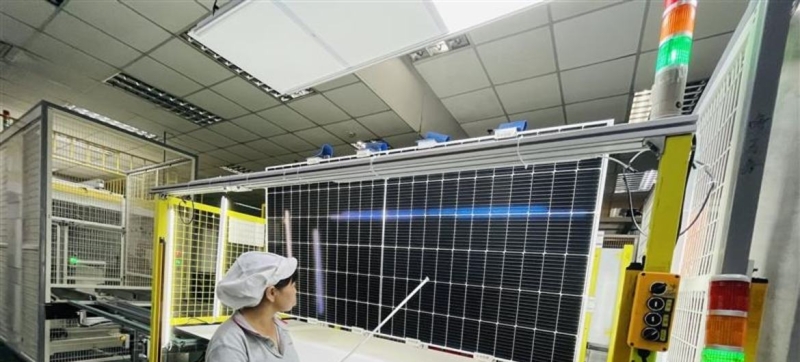
Solar panel manufacturing plant in China. Critical minerals: energy transition must not worsen inequality Economic development
The world is undergoing a “quiet revolution” as humanity switches to renewable energy sources. However, these changes, if left unchecked, could worsen today’s inequality. This was warned by UN Deputy Secretary-General Amina Mohammed, presenting the report of the Panel on Critical Minerals for the Energy Transition.
Energy transition critical minerals such as copper, lithium, nickel, cobalt and rare earth metals are key components of many of today’s rapidly evolving clean energy technologies, from wind turbines and solar panels to electric vehicles and batteries. Demand for energy transition critical minerals will nearly triple by 2030 as the world shifts from fossil fuels to renewable energy to cut global carbon dioxide emissions to net zero by 2050.
Growing demand for essential minerals risks perpetuating resource dependence and exacerbating geopolitical tensions, environmental and social problems. As resource extraction accelerates to meet the demands of the energy transition, it is critical to ensure that the countries and communities that hold these resources reap the greatest benefits.
To study the issue and understand how to counteract negative trends, the UN Secretary-General convened a group of experts who developed recommendations. Amina Mohammed stressed that it was necessary to prevent a situation where developing countries provide raw materials, their populations are exploited and the environment is destroyed, while other countries use the raw materials they provide and get rich.
“The Panel’s report suggests measures by which governments, industry and the United Nations can work to ensure that critical mineral supply chains for the energy transition are conducted in a fair and equitable manner,” Mohammed stressed.
Above all, she added, it is important for major powers to agree to cooperate, and for this there must be trust between them.
“Climate change is a common threat,” said South African Ambassador to the UN and co-chair of the Critical Minerals Transition Panel Nozipho Mxakato-Diseko. “We will either go down together or rise up together – based on common values.”
